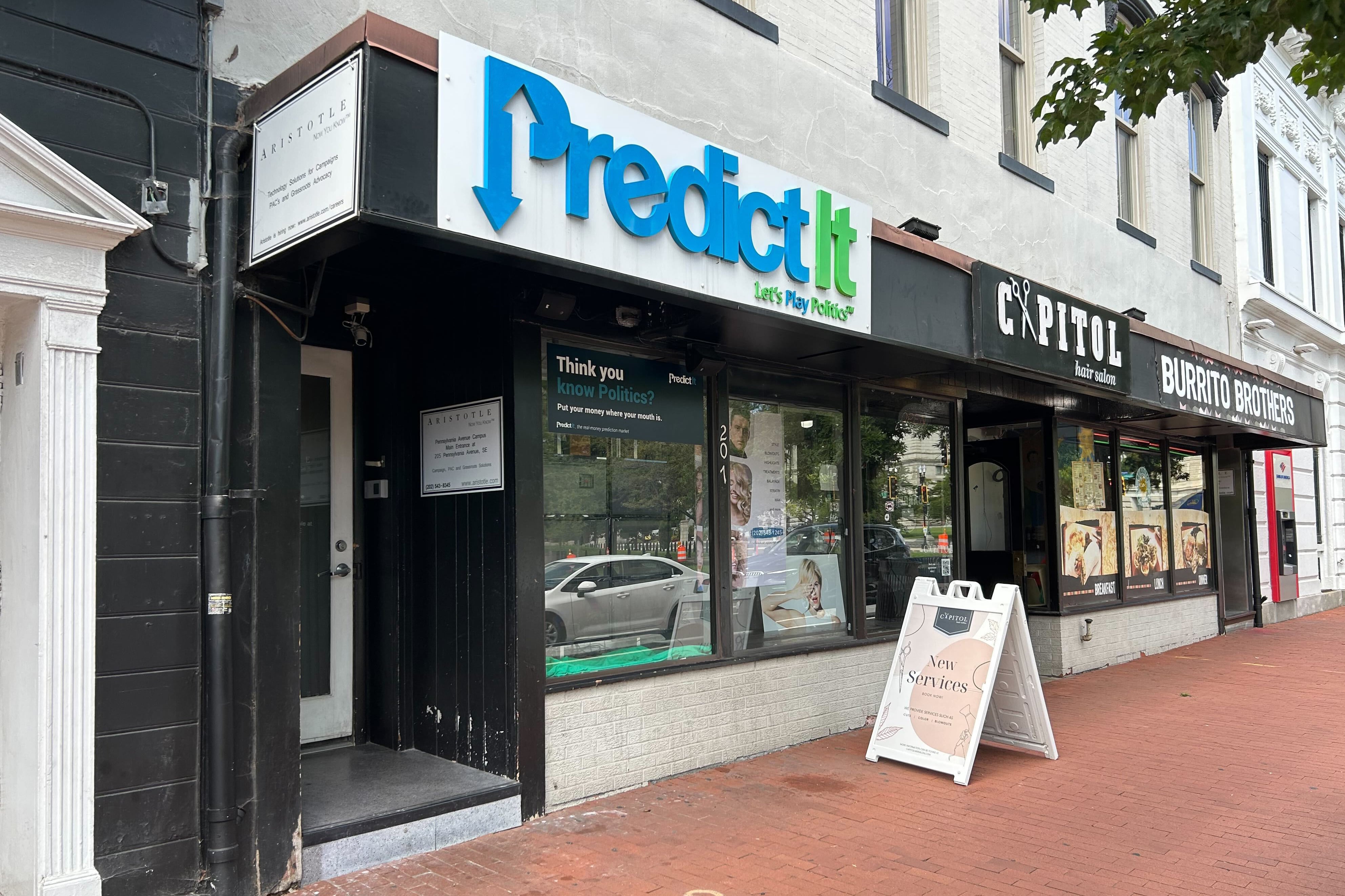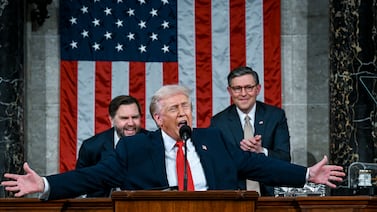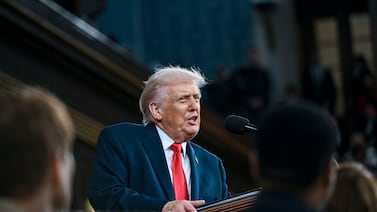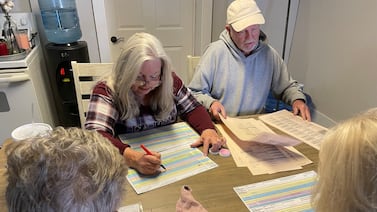Votebeat is a nonprofit news organization reporting on voting access and election administration across the U.S. Sign up for our free newsletters here. A version of this post was originally distributed in Votebeat’s free weekly newsletter. Sign up to get it delivered to your inbox every Saturday.
It is a universal truth in politics that elections have consequences.
Citizens weigh their choices for political leadership, and they vote. The winning candidates have a mandate to pursue their policies. The political minority may not like it, but everyone has to live with it — at least until the next election.
Now, a company that operates as a derivatives exchange and gives odds so users can bet on a wide range of event outcomes says it wants to offer users a way to hedge that bet. Critics say the proposal is essentially indistinguishable from gambling, and has the potential to create financial incentives for election interference.
Kalshi, a company that gives odds on the outcome of the writers’ strike or the U.S . defaulting on its debt, among other things, has told the Commodity Futures Trading Commission it intends to start offering an option for users to essentially bet on political control of the U.S. House and U.S. Senate through what’s called an event contract — the event being a chosen political party’s control of each congressional chamber. It would function much akin to a commodities contract, and some big financial firms, including Susquehanna International Group, have said they’re in favor of it.
According to the information Kalshi submitted to the CFTC, the price would fluctuate between a penny and $1, depending on the odds, and a user would have to buy a minimum of 5,000 options, which means a minimum buy-in would be $500. Big firms that Kalshi determines have a “demonstrated established economic hedging need” would be allowed to bet up to $100 million.
The agency appeared poised to reject a similar proposal from Kalshi earlier this year when the company pulled it.
A lot of folks might be surprised to learn that betting on American elections is, largely speaking, illegal (this New Yorker piece is a good look at that) and the CFTC has rejected such proposals before, arguing that allowing people to bet on the outcome of elections might convince them to vote in favor of their financial interests, which is bad for society. In other words, elections aren’t a commodity and you can’t treat them like soybeans.
There is an exception — PredictIt, run by political data company Aristotle International, which operates under the auspices of a New Zealand university and gives data to academic researchers. The CFTC had issued a so-called “no action” letter in 2014 saying it would allow PredictIt to operate but changed its mind and withdrew the letter in 2022, arguing that PredictIt wasn’t abiding by the conditions. Last month, the U.S. Court of Appeals for the Fifth Circuit allowed PredictIt to keep operating for now.
PredictIt, which has an $850 position limit, is supporting Kalshi’s proposal, but in comments submitted to the CFTC on behalf of Aristotle, its lawyers expressed concern about the high minimum restricting access to the wealthy. The letter argued that would make the betting markets, a valuable alternative to political polling, less accurate and thus, the data less useful to society.
John Phillips, Aristotle’s founder, said the potential harm cited by opponents is hypothetical, and PredictIt has been operating successfully without any ill consequences. The market promotes political engagement, he said, adding, “if you have a little bit of money riding on an outcome you’re more likely to vote.” If you rely on bad information, he pointed out, you’ll lose your cash.
Kalshi has re-submitted its proposal with some changes and under a different protocol. The CFTC is reviewing the most recent submission, and good government groups are outraged. “It’s not a March Madness bracket with your coworkers,” said Stephen Spaulding, vice president for policy of nonprofit advocacy group Common Cause. “This is something on a much bigger scale.”
Allowing Kalshi to move ahead would “incentivize election interference” by giving big-stakes bettors a direct and potentially major financial stake in election outcomes, said Dennis Kelleher, the president and CEO of Better Markets, a nonpartisan nonprofit that promotes financial reform, who also said he doesn’t believe political control necessarily correlates directly with predictable and specific policy outcomes. “If it gets approved, or it doesn’t get stopped, you can bet big money that there are going to be dozens if not hundreds of similar so-called event contracts, and they will be betting on every election in America, from the president to your local dog catcher.”
In comments it submitted to the CFTC, Better Markets wrote that “democracy and elections are foundational principles for our country and are not appropriate subjects for gaming, gambling and betting.” Two Democratic members of Congress, Reps. John Sarbanes and Jamie Raskin, sent a letter making similar points.
It’s certainly true that faith in elections has taken quite a beating lately (there’s an indictment you can read if you want to hear more about that). The CFTC has received thousands of comments from members of the public on this proposal, and many of them echo the views in Better Markets’ letter.
“We already have had election issues in the U.S. (mostly with perception). Allowing gambling will only add to the problems,” wrote one commenter. “Plus, gambling on elections is honestly crazy. There are enough things to gamble on already. Something as important as this shouldn’t be a game.”
But Aristotle’s Phillips says such hedging is happening overseas anyway, and the CFTC can allow it to happen in a regulated way. And besides, he says, aren’t people already voting their economic self-interest? “This guy is going to raise my taxes, I’ll vote against him. This guy is going to cut my benefits, I’ll vote against him,” he said rhetorically. “A lot of people conflate their self-interest with the greater good, I’ll grant you that.”
For its part, Susquehanna argues that a change in control in Congress could subject businesses to an entirely different regulatory environment than the one they had planned to operate in, and Kalshi’s plan could allow such businesses to “protect themselves against meaningful financial exposure.” (It’s worth noting here that Jeff Yass, Susquehanna’s billionaire founder, is a GOP megadonor who donates millions of dollars to groups that spend it attempting to influence the outcome of elections.)
So now it falls to the CFTC to determine whether American elections can be treated like a commodity — and whether money can hedge against the impact of the results, at least for those with enough cash on hand.
Back Then
Please enjoy this blast from the past via the New York Times Archives: In 1895, the president of the Board of Police Commissioners for New York City was a man named Theodore Roosevelt. Yup, that one. That year, he was called before a local court on accusations that the NYPD had not appropriately allowed its officers to cast their ballots on election day. “Mr. Blumenthal alleged that the Police Commissioners had stationed the entire force on duty at the various polling places, and that these men had orders not to leave their stations until the voting was over.” Roosevelt denied these allegations. In an address he read to the court, he said they had done “all in our power” to ensure that officers were allowed to vote. The court ultimately found the commissioners had done nothing wrong.
New From Votebeat
From Votebeat Arizona: Secure ballots or boondoggle? Arizona county tailors project to politically connected firm
In Other Voting News
- Mississippi’s lifetime ban on voting by people convicted of some felonies was struck down as unconstitutional by a three-judge panel of the U.S. Fifth Circuit Court of Appeals who said it constitutes cruel and unusual punishment, Mississippi Today reported. A study found the ban affected nearly 11% of adults in the state, and nearly 16% of Black Mississippians.
- The Aug. 8 special election in Ohio was marked by unexpectedly heavy turnout and minor glitches at some polling places. Lawmakers called this special election in May, despite having passed a law banning August special elections months before due to their historical low turnout numbers.
- After criticism by Republican legislators, the North Carolina State Board of Elections says it intends to remove not knowing about the state’s photo identification requirement as a legitimate reason voters can offer for not possessing an ID at the polls. The NCSBE had initially included the option because the upcoming municipal elections will be the first in which the requirement is in place, and the board was given no additional budget for voter education on voter ID.
- An analysis by the Washington Post points out a small change in former President Trump’s language around the 2020 election: He’s started to label claims the election was stolen from him as “opinion.” In other Trump news, he and his longtime aide both pleaded not guilty to additional charges brought against them in the classified documents case. The special counsel has also proposed an early January trial date in the case against the former president for conspiring to overturn the election. On Friday, the judge in that trial barred Trump from releasing “sensitive information” about the case.
- It happens every year, and every year we are entertained by it: A couple of counties have such close local races that — in Lake County, Minnesota — lots may be drawn and — in Warren County, Mississippi — coins may be tossed.
Carrie Levine is Votebeat’s story editor and is based in Washington, D.C. She edits and frequently writes Votebeat’s national newsletter. Contact Carrie at clevine@votebeat.org.





